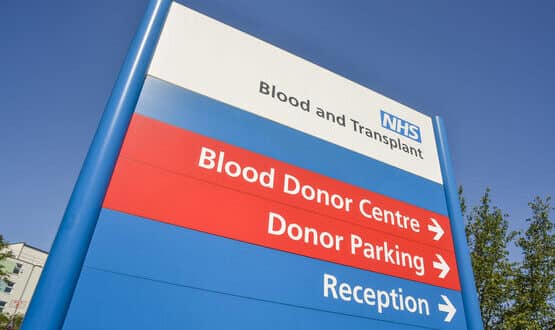Digital Health Coffee Time Briefing ☕
- 1 March 2024

Your morning summary of digital health news, information and events to know about if you want to be “in the know”.
???? News
???? NHS Blood and Transplant (NHSBT) has released its first innovative virtual reality training app ‘NHSBT Blood Identification’ which realistically simulates the process of testing blood for lifesaving blood transfusions. This opens up its world-leading training to more students interested in a career in biomedical science or transfusion science. Rajpal Singh from St George’s in Bristol, who needs regular blood for thalassaemia, visited the NHSBT Filton site in Bristol to join a training session in the practice lab, learning how to match blood types for safe transfusion. He used the new virtual reality app and also used the real lab equipment. The new VR training is already being used in NHSBT and has just been launched on the Meta Quest App Lab store.
???? The microbiome can identify those who benefit from combination immunotherapy across multiple different cancers, including rare gynaecological cancers, biliary tract cancers and melanoma. Researchers from the Wellcome Sanger Institute, the Olivia Newton-John Cancer Research Institute in Australia, and collaborators, have identified specific strains of bacteria that are linked with a positive response to combination immunotherapy in the largest study of its kind. The study, published today (1 March) in Nature Medicine, details a signature collection of microorganisms in an individual’s gut bacteria that may help identify those who would benefit from combination immunotherapy and help explain why the efficacy of this treatment is otherwise hard to predict.
???? Researchers from the University of Michigan have demonstrated that the Epic Sepsis Model’s risk stratification accuracy was significantly impacted by whether its predictions were restricted to data collected before a patient met sepsis criteria. In the study, published this month in the New England Journal of Medicine (NEJM) AI, the research team indicated that AI tools capable of predicting sepsis onset could improve treatment and outcomes. Tools to identify sepsis risk, like the Epic Sepsis Model (ESM), have been developed and deployed in health systems across the United States, but questions about their accuracy and clinical utility have been raised recently. Wide utilisation of Epic’s electronic health record (EHR) system, within which the ESM is embedded, has led to multiple assessments of the sepsis tool’s performance.
???? Ema, an AI platform dedicated to transforming women’s health and wellness, has successfully concluded its latest bridge round of funding, securing nearly $2 million. The round saw participation from Kubera Ventures and Victorum Capital, as well as previous investors Hearst Labs, Wormhole Capital, Acumen America, and Techstars. Founded on the principle that women’s health deserves personalised, empathetic, and evidence-based support, Ema leverages generative AI (GenAI) technology to offer personalised health assistance at scale. This innovative approach has not only resonated within the direct-to-consumer (DTC) space with more than 100,000 users but has also made substantial inroads into the B2B sector, securing over $100K in contracts within just 30 days after pivoting to this model, according to information provided by the company.
???? Cancer patients living with a rare disease which attacks the body’s own organs following a life-saving stem cell transplant are set to benefit from a pioneering new medicine on the NHS. Belumosudil (Rezurock) is an innovative treatment for chronic graft versus host disease, which develops in around a third of patients who have undergone stem cell or bone marrow transplants for blood cancers such as leukaemia and lymphoma. The drug is given once a day as a tablet and works by inhibiting the proteins which are responsible for the potentially life-threatening inflammatory response caused by chronic graft versus host disease. It can be taken at home, reducing the number of hospital appointments for some patients. In clinical trials using belumosudil to treat chronic graft versus host disease, up to three quarters of patients responded to therapy and this was most effective for treating disease affecting the mouth, intestine or joints.
❓ Did you know that?
Half (50%) of nurses and care workers have experienced mental health problems and stress as a result of not having the relevant skills to perform their jobs well, according to new research from healthcare education startup, FuturU.
Mental health is one of the most pressing challenges currently faced by the health and social care sector as a whole. According to NHS Digital, mental ill health accounts for over 25% of sickness absence in the NHS. In 2022, councils in England lost over 500,000 working days to mental ill health and stress among care workers. Yet, the link between mental health and the skills gap is less well recognised or discussed.
???? What we’re reading
How Medical Imaging is Redefining Healthcare – John Memarian, VP at digital healthcare innovator CitiusTech, explores medical imaging, including how the technology is impacting healthcare
???? This week’s events
1 March 2024, Westminster Health Forum – Next steps for respiratory health services in England


